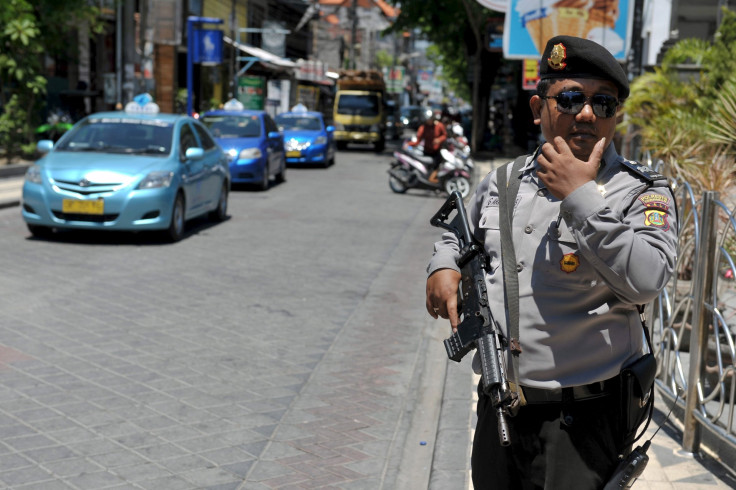Tourists In Indonesia Say They Are More Alert Than Ususal Following Attacks

REUTERS
Tourists in Indonesia said on Friday (January 15) that they were more alert following a deadly attack claimed by Islamic State (ISIS), but most said it was not enough to send them packing yet.
Indonesia is bracing itself for a drop in tourist numbers though following the dramatic and deadly attack in the capital Jakarta on Thursday, and some travel agents said they had received calls from worried tourists. But they predicted that the effects of the attack would be short-lived.
An Indonesian and a Canadian were killed in the attacks along with five attackers, while 20 people, including a Dutchman, were wounded. Two of the militants were taken alive, police said.
Tourists already in the country and walking around Jakarta's landmarks advised fellow travellers to remain calm with one man saying he actually felt safer because of the extra security deployed in the streets post attack.
"I think it's ok because many many police and commander, it's good I think," said Csaba, a Hungarian tourist visiting Jakarta.
Dutch national Eric Huygen, who has been visiting Jakarta for a few days was asked if tourists should find another holiday destination.
"I don't think so," Huygen said. "More people realise that those things are happening every day around the globe, unfortunately, and you can not stay in your house all the time."
Indonesia's President, Joko Widodo, wants to nearly double tourist arrivals to 20 million people by 2019. This latest attack could frustrate his ambition. Indonesia's tourism ministry said that it was sticking to that target despite the gun and bomb assault.
The government has removed visa requirements for visitors making a short visit from 84 countries, and is working to give visa-free entry to more nationalities in a bid to attract more travellers.
Indonesia, famous for the idyllic island of Bali, its dramatic volcanic landscapes and ancient temples, was estimated to have welcomed 10 million foreign tourists in 2015.
Many tourists on the golden Bali beaches said they would take extra precautions, avoid crowded areas but otherwise go about their holiday as planned.
"I'm a little scared but honestly there's probably more police out there right now so I think, if anything, I'm probably safer now," said New Yorker Mike Rosenthal.
"Well I started off being a little scared. It's kind of unnerving knowing that something like that happened very close to where we are about to go, but I feel safe, I'm with my friends, we're staying together. We're not going to go to very heavily populated areas and I think that the police will handle it well," said Michael Loder, another New Yorker visiting Bali.
Bali, located hundreds of miles from Jakarta and a major attraction for tourists, was a target of militant attacks more than a decade ago, when a nightclub bombing killed 202 people, most of them tourists.
In Jakarta, police said the way the attacks unfolded showed the authorities were in fact in control.
Police say the five militants who attacked a Starbucks cafe and police post in central Jakarta came lightly armed, with just two pistols and about a dozen low-yield homemade bombs. Over half an hour in which all the militants died, they succeeded in killing two people, and wounding 31.
National police said the assault was "planned and organised but did not have the maximum impact".
"Although the situation is peaceful we still need to stay alert. But do not be afraid, just like yesterday, any conflict will be resolved quickly," said National Police Spokesperson, Anton Charliyan.
Travel and tourism directly contributed around 23 billion US dollars to Indonesia's economy in 2014, or about 3.2 percent of GDP, according to a report from the World Travel & Tourism Council.
It forecast that figure to rise by 6 percent last year, and to show an annual growth of 5.3 percent from 2015-2025.
© Copyright Thomson Reuters 2024. All rights reserved.











